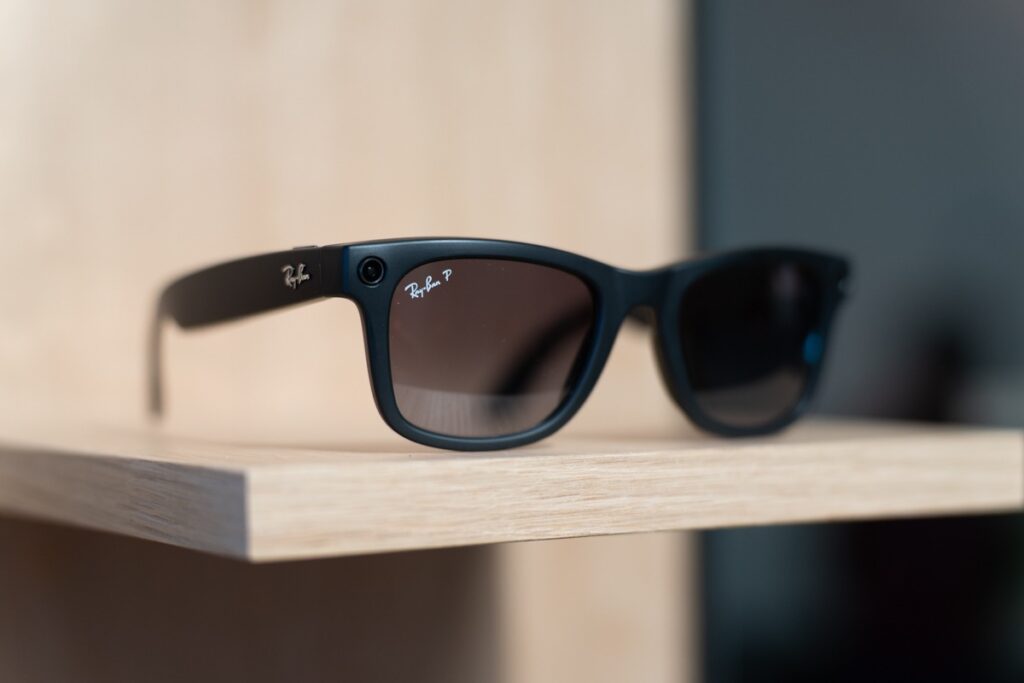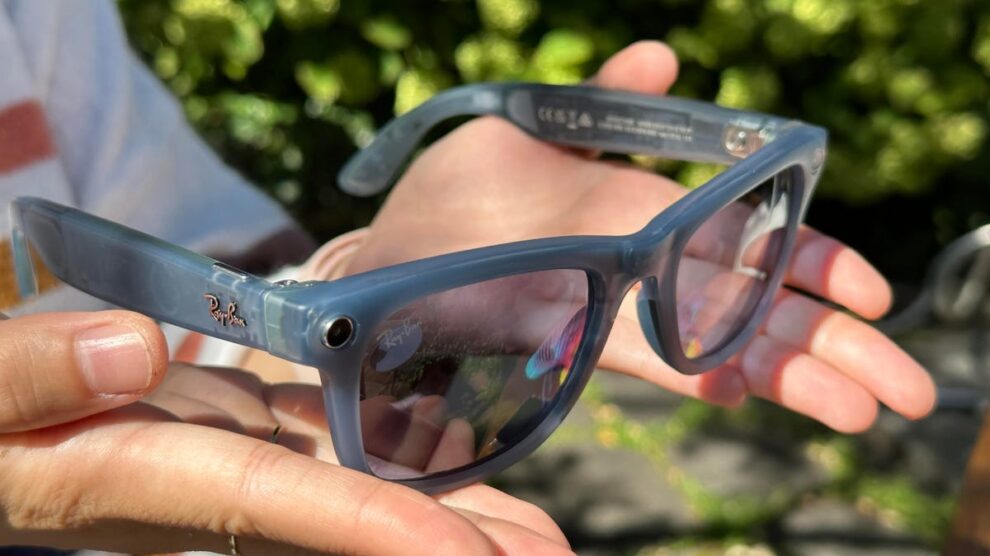In the rapidly evolving landscape of wearable technology, smart glasses have emerged as a frontier for innovation, blending the digital and physical worlds in unprecedented ways. However, as these devices become more sophisticated, incorporating AI and always-on cameras, they also raise significant privacy concerns. The latest iteration of smart eyewear from Meta, in collaboration with Ray-Ban, exemplifies this double-edged sword of technological advancement and privacy risks.

The AI-Powered Camera: A Privacy Pandora’s Box
Meta’s AI-powered Ray-Bans feature a discreet camera on the front, capable of taking photos not just on command, but also when triggered by certain AI-recognized keywords such as “look.” This feature significantly increases the number of photos taken, both intentionally and passively.
The privacy concern here is twofold:
- The sheer volume of data being collected, often without the user’s active participation.
- The uncertainty surrounding how this data will be used by Meta.
Meta’s Ambiguous Stance on Data Usage
When questioned about their plans to use these images for AI model training, Meta’s response was notably evasive. In a video interview with TechCrunch, Meta representatives refused to provide a clear answer:
“We’re not publicly discussing that,” said Anuj Kumar, a senior director working on AI wearables at Meta.
“That’s not something we typically share externally,” added Meta spokesperson Mimi Huggins.
This lack of transparency is particularly concerning given Meta’s history of using public social media content for AI training. For more on Meta’s data practices, see our article on Meta’s Data Usage Policies: What You Need to Know.
The AI Feature: Amplifying Data Collection
The concern is amplified by Meta’s new real-time video feature for the Ray-Ban smart glasses. This feature, when activated by certain keywords, streams a series of images to a multimodal AI model, allowing it to answer questions about the user’s surroundings in real-time.
This functionality means that the glasses are potentially capturing and uploading numerous images of the user’s environment, often without their conscious awareness. For instance, asking the glasses to help choose an outfit could result in dozens of photos of your room being uploaded to an AI model in the cloud.
The crucial question remains: What happens to these photos after they’re processed? Meta’s refusal to provide a clear answer leaves users in the dark about the fate of their personal data.
The Social Implications: Beyond Personal Privacy
The privacy concerns extend beyond the individual user. Wearing a camera on one’s face in public spaces raises ethical questions about the privacy of others. The social impact of wearable cameras has been a topic of debate since the introduction of Google Glass, and these concerns are equally relevant to Meta’s smart glasses.
Given these broader implications, one might expect Meta to be proactive in addressing privacy concerns. A clear statement ensuring that all photos and videos from the glasses would remain private and siloed to the device would go a long way in alleviating public concern. However, Meta has not made such assurances.
Contrasting Approaches to Data Privacy
Meta’s ambiguous stance on data usage contrasts sharply with the policies of other AI companies:
- Anthropic states that it never trains on a customer’s inputs into, or outputs from, its AI models.
- OpenAI similarly asserts that it does not train on user inputs or outputs through its API.
These clear-cut rules provide users with certainty about the privacy of their data, something Meta has failed to do with its Ray-Ban smart glasses.
Conclusion: The Need for Transparency
As wearable AI technology becomes more prevalent, the need for clear, transparent policies on data usage becomes increasingly crucial. Meta’s ambiguous stance on the use of photos collected by its AI-powered Ray-Bans raises significant privacy concerns, not just for users of the device, but for anyone who might be captured by its cameras.
While the technology offers exciting possibilities, it’s essential that companies like Meta prioritize user privacy and provide clear, unambiguous information about how personal data will be used. As consumers, it’s crucial to stay informed and demand transparency from tech companies to ensure our privacy is protected in this new era of AI-powered wearables.
Related Links:










Add Comment